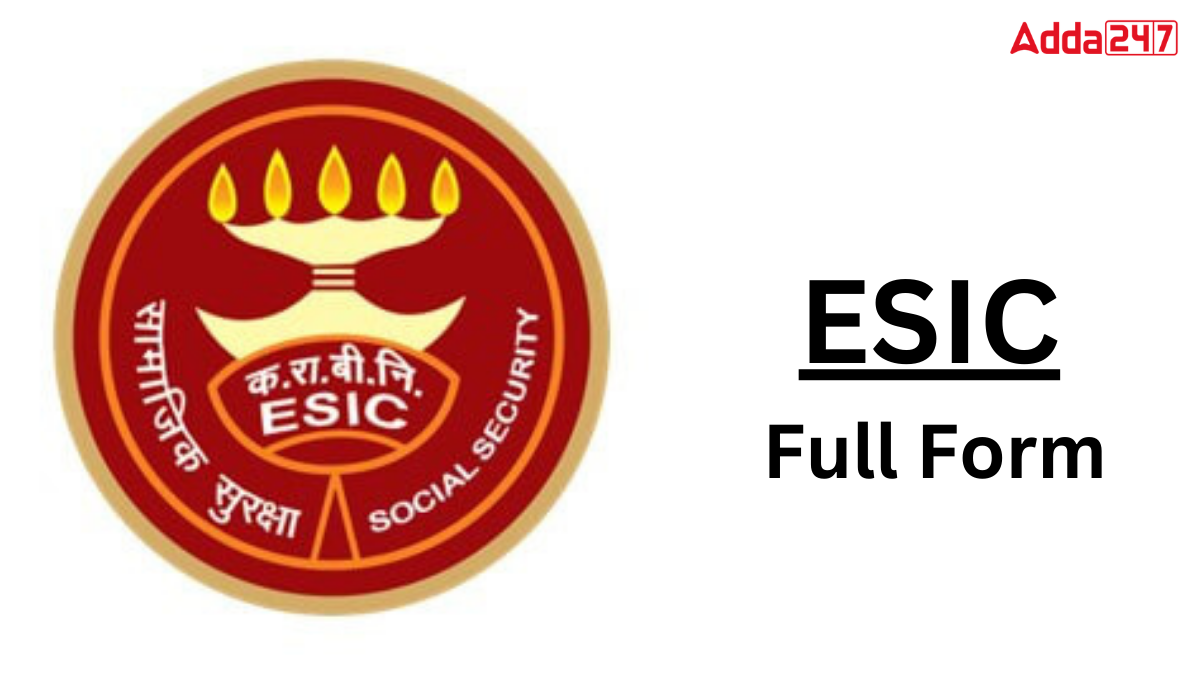The Employees’ State Insurance Corporation (ESIC) is an important organization in India that provides social security to workers. It is run by the Ministry of Labor and Employment, Government of India. The ESIC scheme offers financial support to employees during health emergencies, including medical care, maternity benefits, and unemployment assistance.
Full Form of ESIC
ESIC stands for Employees’ State Insurance Corporation. It is a government organization in India under the Ministry of Labor and Employment. Established by the ESI Act of 1948, ESIC provides social security to workers through various benefits, including medical care, maternity support, and financial assistance during sickness or disability. The scheme aims to ensure financial security and better healthcare for employees and their families in times of need.
History of ESIC
The roots of ESIC go back to March 1943 when the Indian government asked Professor B.P. Adarkar to study health insurance for workers. His report laid the groundwork for the Employees’ State Insurance (ESI) Act, which was enacted in 1948. The aim was to create a safety net for workers against health issues, maternity, and injuries related to work. The ESI scheme was first implemented in Kanpur and Delhi on February 24, 1952.
The ESIC Act
The ESI Act established ESIC as an autonomous corporation. It allows the corporation to manage funds, own properties, and set up hospitals. The majority of hospitals and dispensaries are run in cooperation with state governments.
Purpose of ESIC
The ESIC aims to provide comprehensive insurance services to employees facing emergencies such as illness, injury, accidents, pregnancy, or even death. This system ensures that workers have access to necessary healthcare and financial support during challenging times, promoting their overall well-being.
Structure of ESIC
The organizational structure of ESIC is designed to efficiently implement and manage the Employee State Insurance scheme. The key components include:
- Director-General: Appointed by the Central Government, the Director-General oversees the overall functioning of ESIC.
- Standing Committee: This committee comprises ESIC members and is responsible for executing the corporation’s powers and decisions.
- Medical Benefits Board: This board advises the ESIC on matters related to medical benefits and ensures that the services offered align with healthcare standards.
To support the ESI plan’s implementation, ESIC has its head office in New Delhi, along with 23 regional offices, 26 sub-regional offices, and over 800 local offices across the country.
Benefits of ESIC, Employees’ State Insurance Corporation
According to the ESI Act, the ESIC provides six main benefits to its members:
- Medical Assistance: Employees and their families receive medical treatment.
- Sickness Assistance: Financial support during illness.
- Maternity Assistance: Benefits for female employees during maternity.
- Disablement Assistance: Support for employees who become disabled.
- Dependants Assistance: Benefits for dependents of the insured.
- Other Benefits: Various additional benefits as needed.
For employees earning ₹21,000 or less per month, employers contribute 3.25% and employees contribute 0.75% to the fund, totaling 4%. This fund is used to provide medical and cash benefits to employees and their families.




 List of National and International Organ...
List of National and International Organ...
 DBT Marks 40 Years; Dr Jitendra Singh La...
DBT Marks 40 Years; Dr Jitendra Singh La...
 7th All India Conference of GRP Chiefs C...
7th All India Conference of GRP Chiefs C...








